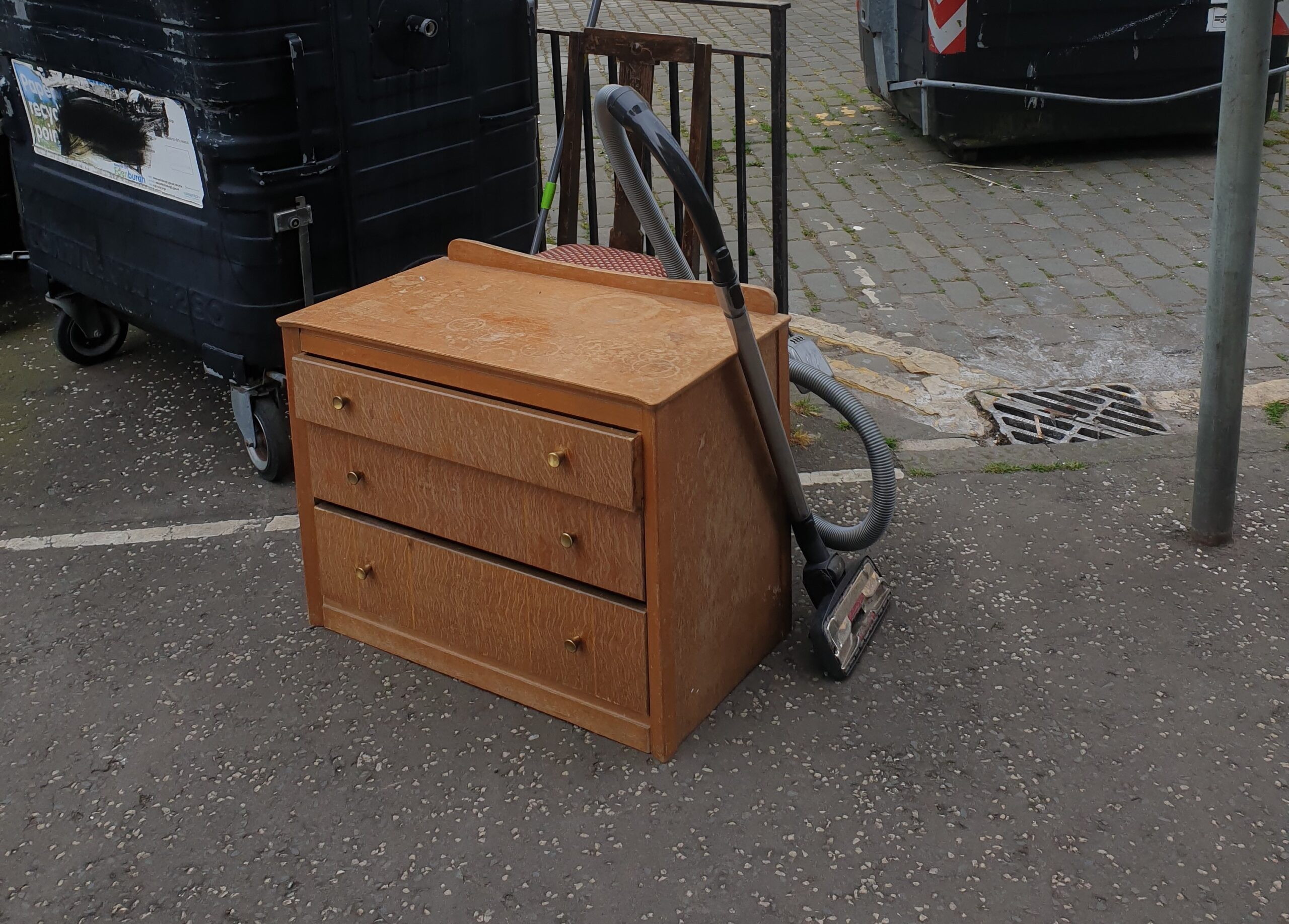by Susanna Macdonald-Mulvihill, doctoral researcher at Edinburgh Law School
In recent years there has been a rise in societal awareness of the need for more sustainability and a general push towards creating a “circular economy” in which one person’s junk becomes another’s useful treasure. Internet based sharing sites, such as Freecycle, or Facebook Community groups, such as The Meadows Share in Edinburgh, have popped up to allow people to freely redistribute their unwanted items to those who might have use for them, thus reducing the amount of waste sent to landfill. However, as Dr Jill Robbie noted in a blog post for Glasgow University Law School, the Scots law surrounding abandoned property is an impediment to the aims of the circular economy. Robbie is not the first to suggest that the law on abandonment is inadequate: the Scottish Law Commission in their Report on Prescription and Title to Moveable Property also highlighted the absurdity of the Scots position of bona vacantia, whereby the Crown automatically becomes owner of all kinds of useless things, including litter and broken household goods.
The principal problem for the circular economy with the law of abandonment is that anyone who sees something left beside a bin (like the chest of drawers in the picture above) and takes it home is technically stealing (Mackenzie v MacLean 1981 SLT (Sh Ct) 40). My great-uncle would have been shocked to learn that his habit of ‘skip-scavenging’ meant he was, in fact, leading a life of crime. But that is only if we characterise such items as abandoned property. Those who currently think the law requires reform may have overlooked a little known principle that could provide legitimate title to those who can make use of another’s rubbish: traditio incertae personae. In short, this is a “transfer to an uncertain person”. The original owner retains title until another person picks it up and assumes ownership. Thus, the property is never truly abandoned because the intention of the original owner is not simply to surrender ownership but to gift it to whomever wishes to have it.
1 Comment
